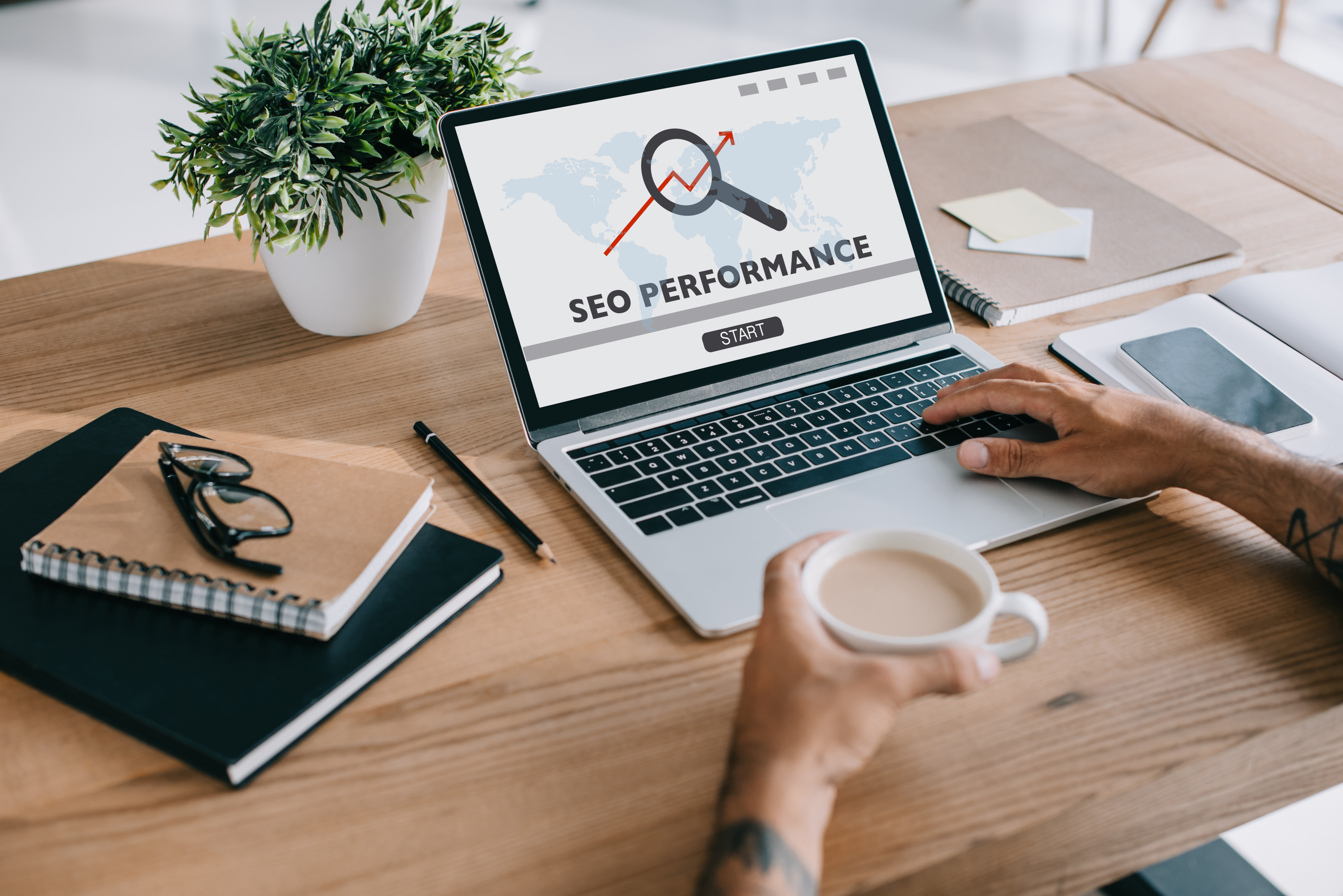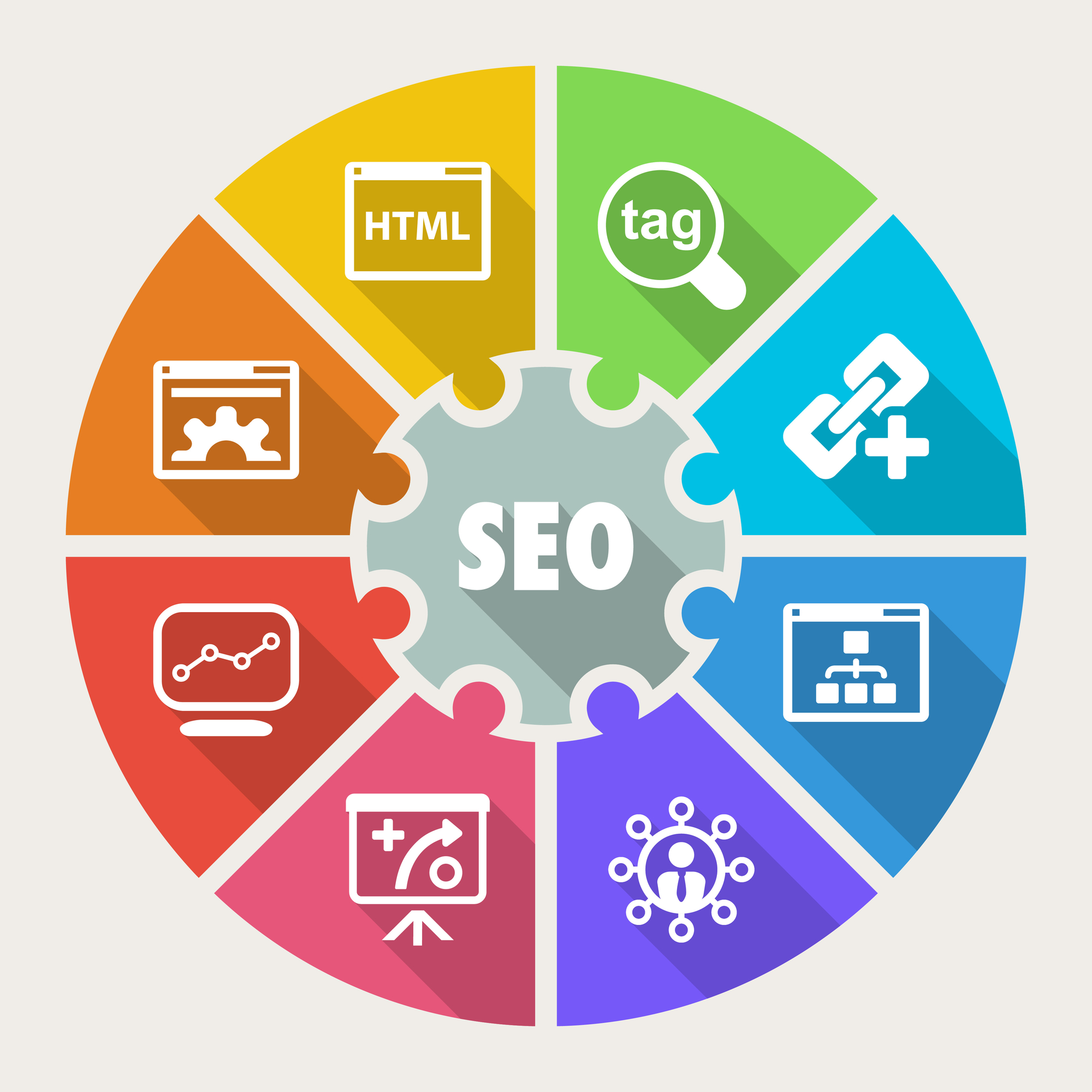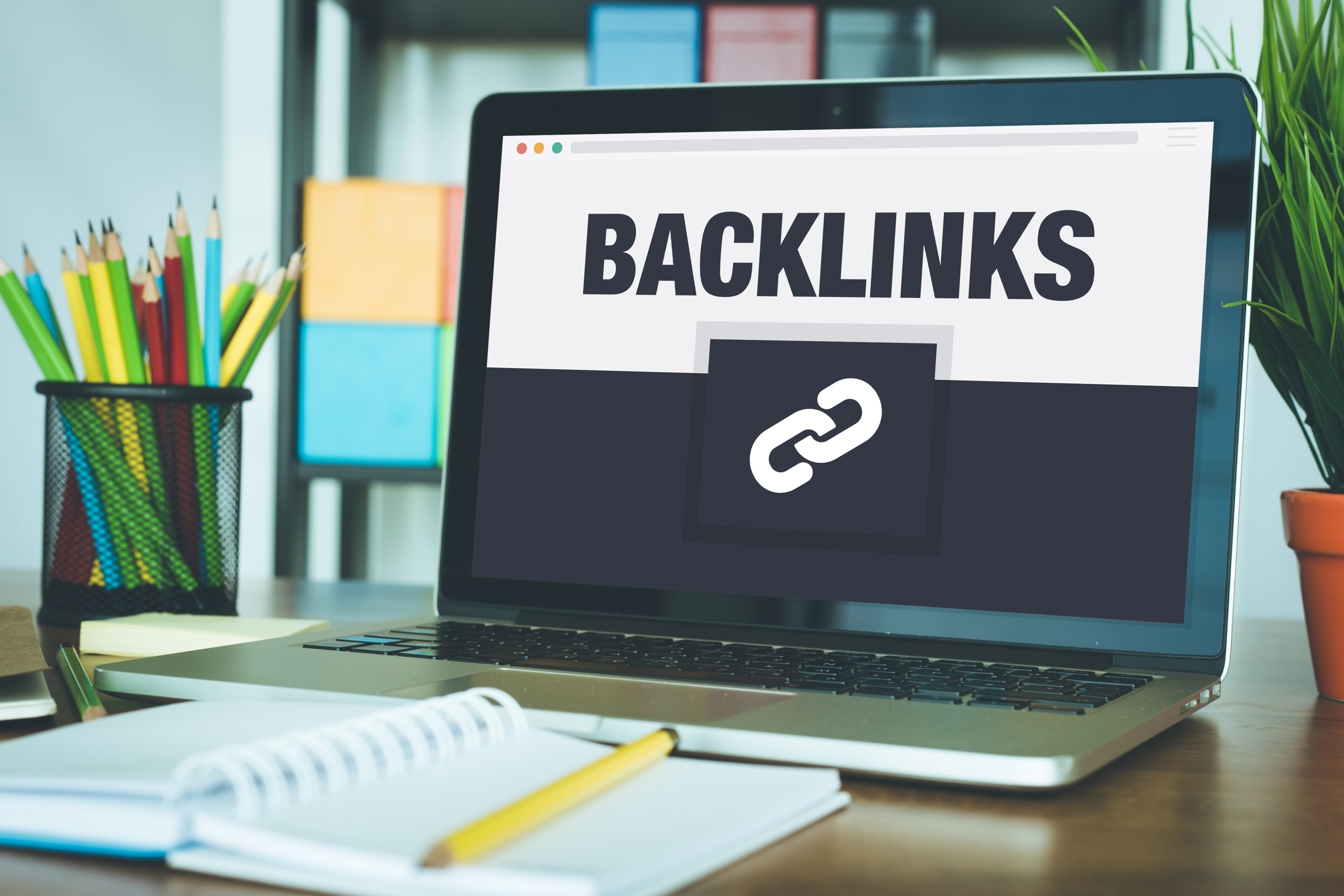A Comprehensive Guide to Local SEO Strategies for 2024
Imagine a world where your small business thrives locally, attracting customers through enhanced online visibility. In order to make your small business thrive locally, you need to implement effective local SEO strategies for 2024. In this guide, we’ll explore some of the best ways to conquer the local search landscape. Let’s dive right in!
Short Summary
- Local SEO is essential for small businesses to gain visibility and build trust in local areas.
- Optimizing your Google Business Profile, conducting keyword research, enhancing on-page SEO & building a strong backlink profile are key strategies for success.
- Participating in local events & leveraging media coverage can help improve rankings and attract customers.
Understanding the Importance of Local SEO

Local SEO is all about boosting the online presence of local businesses, ensuring they shine in local search results and attract customers like bees to honey. So why is it so important? With more than 30% of Google searches being location-based, it’s essential for small businesses to have a strong local SEO strategy in place to get noticed and reel in customers.
Not only does local SEO impact small businesses, it’s also crucial to know and understand the target neighborhoods and their demographics to create content that resonates with potential customers.
Let’s explore the impact of local SEO on small businesses and the latest trends in local search.
The impact on small businesses
Local SEO is a game-changer for small businesses, helping them gain visibility in local search results, such as the “map pack” and organic “blue link” results. It’s all about building trust with online listings and getting noticed in the right places like locally-focused directories and local blogs.
In fact, 17% of SEOs believe that reviews are the most important factor for map pack rankings, highlighting the significance of a well-maintained Google Business Profile and other relevant review platforms.
Local search trends
Local search engines like Google and Bing scour the web for citations to validate and refresh their databases. Since reviews play a significant role in local search trends, with 17% of SEOs considering them the most important ranking factor for map pack rankings, it’s crucial to manage them effectively.
Businesses can help search engines validate their information by ensuring consistent and complete listings across data aggregators such as Yelp and Hotfrog.
Setting Up and Optimizing Google Business Profile

The first step in local SEO is setting up and optimizing your Google Business Profile. This free listing provides essential information about your business, such as location, services, products, and photos. An optimized Google Business Profile is the top local SEO ranking factor according to Google, so it’s no surprise that businesses with a complete profile are 70% more likely to attract customers and 50% more likely to be considered for a purchase.
Claiming your listing and providing accurate, detailed information are crucial for local SEO success. Let’s dive deeper into how you can claim your listing and ensure your information is up-to-date.
Claiming your listing
To claim your Google Business Profile, head to the Google My Business platform, enter your business name, select the correct listing, and click “Claim this business”.
When creating NAP (name, address, phone number) citations, it’s essential to maintain consistency across all platforms and include your business information in all citations. Utilizing local directories can help increase the number of citations, and regularly monitoring them ensures accuracy.
Providing accurate and detailed information
Supplying accurate and up-to-date information in your Google Business Profile is crucial for boosting your chances of appearing in local search results and map packs. In fact, achieving a 100% Google Business Profile listing score can significantly enhance your local ranking.
Remember, keeping your information current and accurate across data aggregators can impact your visibility on search engines like Google.
Conducting Local Keyword Research

Local keyword research is vital for targeting relevant queries and understanding how people search for local services. By using keyword research tools and analyzing competitors’ keywords, you can unearth high-volume terms that can drive more traffic to your website.
Keyword research tools like Google Keyword Planner, Ahrefs Keyword Explorer, SEMRush, and Moz Keyword Explorer offer valuable insights into the keywords your target audience uses when searching for local services. Analyzing your competitors’ keywords can help you identify missed opportunities and optimize your content for better local search engine rankings.
Using keyword research tools
Keyword research tools are essential for local SEO as they help you discover the most relevant and popular keywords for your local area. Tools like Google Keyword Planner, Ahrefs Keyword Explorer, SEMRush, Moz Keyword Explorer, and Serpstat can provide valuable data on search volume, competition levels, and other crucial metrics.
By incorporating these keywords into your website and content, you can enhance your local search engine rankings and attract more potential customers.
Analyzing competitors’ keywords
One effective way to identify potential keyword opportunities is by analyzing the keywords your local competitors are using. Tools like Semrush, Spyfu, and Ahrefs can provide insights into the keywords your competitors are ranking for, helping you find gaps in your own keyword strategy.
By understanding your competitors’ strengths and weaknesses, you can gain an edge and optimize your content to outrank them in local search results.
Enhancing On-Page SEO for Local Rankings

Optimizing on-page SEO for local rankings involves creating location-specific content, tweaking URL structure and meta tags, and using Schema markup. Proper on-page SEO can help your website rank higher in local search results, making it easier for potential customers to find your business.
Creating location-specific content is crucial for attracting a local audience and showcasing your expertise in your field. Additionally, optimizing URL structure and meta tags can help search engines understand your content better and display it prominently in local search results.
Let’s explore how to enhance on-page SEO for local rankings through location-specific content and URL structure and meta tags optimization.
Location-specific content
Location-specific content is tailored to a particular area, making it valuable and relevant to people in that region. Examples of location-specific content include city-specific landing pages, regional pages, special offers, and hosting local events.
By creating content that resonates with your target audience, you can attract more local customers and boost your local SEO rankings.
URL structure and meta tags
Optimizing your URL structure and meta tags is crucial for local SEO. URLs should be short, clear, and include important keywords, making it easy for both users and search engines to understand what the page is about. Meta tags provide additional information about the page, such as title, description, and keywords, helping search engines understand how it relates to local search queries.
By optimizing your URL structure and meta tags, you can improve your visibility in local search results and attract more potential customers.
Building a Strong Local Backlink Profile

Building a strong local backlink profile is a vital aspect of local SEO. Relevance and authority play a significant role in link building, and taking advantage of local link-building opportunities can help improve your local search rankings.
High-quality backlinks from relevant and authoritative websites signal to search engines that your website is trustworthy and valuable, which can boost your local search rankings. Let’s delve into the importance of relevance and authority and explore local link-building opportunities.
Relevance and authority
In local SEO, the relevance and authority of backlinks are crucial for building a strong backlink profile. Relevance refers to how well a backlink matches a search query, while authority measures the strength of a website’s ranking.
By securing backlinks from relevant and authoritative websites, you can improve your local search rankings and increase your online visibility.
Local link-building opportunities
Several local link-building opportunities exist, such as creating citations, setting up social media profiles, getting listed in local business directories, exploring industry-specific directories, and networking with local media outlets.
These local link-building strategies can help boost your visibility in local search results and generate more organic traffic to your website.
Encouraging and Managing Online Reviews

Online reviews are crucial for local SEO success, as they help potential customers find your business and trust your products or services. Google reviews, in particular, play a vital role in shaping your online reputation and can impact your local search rankings. It’s essential to respond to negative reviews promptly and professionally to build trust with potential customers.
Google reviews not only affect your local search rankings, but also create trust with both Google and your customers. By encouraging and managing online reviews effectively, you can boost your local SEO rankings and attract more customers to your business.
Importance of Google reviews
Google reviews hold significant weight in local SEO, as they can boost the relevancy of your products and services in local search results. The number of reviews you receive can also affect your local ranking, making it crucial to manage and encourage Google reviews actively.
By focusing on providing excellent customer service and encouraging satisfied customers to leave reviews, you can improve your online reputation and boost your local search rankings.
Responding to negative reviews
Responding to negative reviews can be challenging but is essential for maintaining a positive online reputation. When addressing negative reviews, stay calm, acknowledge the customer’s issues, apologize for their negative experience, and offer a solution or ask them to get in touch to resolve the issue.
Responding quickly and professionally demonstrates that you value your customers’ experiences and are committed to addressing their concerns.
Utilizing Schema Markup for Local SEO

Schema markup is a powerful tool for local SEO, as it helps search engines understand your content and display additional information in search results. By following Google’s guidelines and checking out resources like Search Engine Journal and Schema.org’s Local Business section, you can implement Schema markup effectively and improve your local SEO performance.
Adding geographic markup to your website can improve your local search rankings and provide users with more relevant search results. Testing and validating your markup ensures that your structured data is implemented correctly and follows search engine guidelines, leading to better visibility in local search results.
Let’s explore how to add geographic markup and test and validate your markup for local SEO success.
Adding geographic markup
Geographic markup, such as Geography Markup Language (GML), can be used to create structured data markup for your website. This markup helps search engines understand the geographic context of your website, potentially leading to improved local search engine rankings.
By adding accurate and up-to-date geographic markup to your website, you can enhance your local search results and provide users with more relevant information.
Testing and validating markup
It’s crucial to test and validate your markup to ensure it’s implemented correctly and adheres to search engine guidelines. Tools like Google’s Structured Data Testing Tool, Google Search Console’s Structured Data Report, Schema.org’s Structured Data Testing Tool, and the Rich Results Test can help you check and validate your markup.
By ensuring your markup is accurate and up-to-date, you can boost your visibility in local search results and attract more potential customers.
Ensuring Mobile-Friendliness

As most people perform local searches on mobile devices and look for reviews, directions, and contact information, ensuring mobile-friendliness is essential for local SEO success. A mobile-friendly website should incorporate responsive design and meet Core Web Vitals standards to provide a seamless user experience across different devices.
Responsive design is a crucial factor in creating a mobile-friendly website. By optimizing your website’s layout, images, and navigation for mobile devices, you can provide a better user experience and improve your local search rankings.
Let’s explore the importance of responsive design and Core Web Vitals in local SEO.
Responsive design
Responsive design is an approach to web design that ensures your content looks great on any device, from smartphones to tablets to desktops. By using flexible grids, images, and CSS media queries that adjust based on screen size, platform, and orientation, you can create a mobile-friendly website that appeals to users and search engines alike.
Implementing responsive design not only improves the user experience but can also boost your SEO rankings, as search engines favor mobile-friendly websites.
Core Web Vitals
Core Web Vitals are a set of metrics that measure the user experience on a website, including Largest Contentful Paint (LCP), First Input Delay (FID), and Cumulative Layout Shift (CLS). Ensuring your website meets Core Web Vitals standards is important for local SEO, as it can improve your search engine rankings and help you stand out in local search results.
You can use Google’s PageSpeed Insights tool to check if your website meets Core Web Vitals standards and make any necessary adjustments.
Engaging in Local Community Outreach

Engaging in local community outreach can benefit your digital PR, brand awareness, and inbound links, ultimately improving your local SEO performance. By participating in local events, campaigns, and media appearances, you can build connections and gain valuable exposure for your business. Additionally, featuring a scholarship in your region can result in valuable.edu backlinks, further boosting your local SEO efforts.
Participating in local events can help your business grow and strengthen its local SEO presence. By hosting events, offering special discounts, or organizing campaigns tailored to your local audience, you can build relationships within your community and improve your local search rankings.
Let’s explore the benefits of participating in local events and leveraging local media coverage for local SEO success.
Participating in local events
Hosting local events that resonate with your target audience can boost your local SEO and increase brand recognition. By engaging in events that are related to your business, you can create a positive image in your community and attract more local customers.
Additionally, participating in local events provides an opportunity to network with other local businesses and potentially gain valuable backlinks and referrals.
Leveraging local media coverage
Local media coverage is a powerful tool for boosting your local SEO efforts. By building relationships with local newspapers, radio stations, and TV stations, you can increase your brand’s visibility and gain valuable backlinks from authoritative sources.
Furthermore, featuring a scholarship program in your region can generate valuable.edu backlinks, which are highly regarded by search engines and can significantly improve your local search rankings.
Summary
In conclusion, local SEO is an invaluable tool for small businesses looking to gain visibility and attract customers in their local area. By implementing the strategies discussed in this comprehensive guide, such as optimizing your Google Business Profile, conducting local keyword research, enhancing on-page SEO, building a strong local backlink profile, managing online reviews, utilizing Schema markup, and engaging in local community outreach, you can conquer the local search landscape in 2024. So get started on your local SEO journey and watch your small business reach new heights!
Frequently Asked Questions
What is the best SEO strategy for 2024?
In 2024, the best SEO strategy for optimizing organic traffic is to ensure your website meets current best practices. This includes identifying the right keywords, creating relevant content, optimizing page titles and descriptions, optimizing images, using internal links, optimizing URLs, reducing website load time, and building quality backlinks.
By following these simple but important steps, you’ll be well-positioned to take advantage of SEO opportunities in 2024.
What is the future of SEO in 2024?
In 2024, SEO will still be a vital part of online success for businesses, with a focus on user experience and quality content. Optimizing page speed, staying on top of algorithm updates, and utilizing AI-driven strategies to create engaging content will be key for achieving visibility and success in the search engine rankings.
Is SEO worth it in 2024?
Overall, SEO is absolutely worth it in 2024. Investing in SEO now will help your website stand out from the competition and get seen by potential customers. The rules of SEO may change over time, but the basics of SEO will remain the same. As long as websites exist, there will always be a need for good search engine optimization practices.
What is one SEO trend that will dominate in 2024 and why?
In 2024, we will see a shift toward leveraging website architecture to increase traffic and conversions. By properly structuring website navigation, URLs and metadata, marketers will be able to improve website accessibility, optimize content delivery, and ensure users are provided with the most relevant search engine results.
This will help websites stay ahead in an increasingly competitive market.
What is local SEO strategy?
Local SEO strategy is a process of optimizing your website to rank higher in local search results, allowing you to target potential customers in a specific geographic area. It involves applying best practices for on-page optimization, as well as off-page tactics such as local listings and citations, backlinks, content marketing, and more.
By following these steps, businesses can increase their visibility in local searches and attract more customers.





